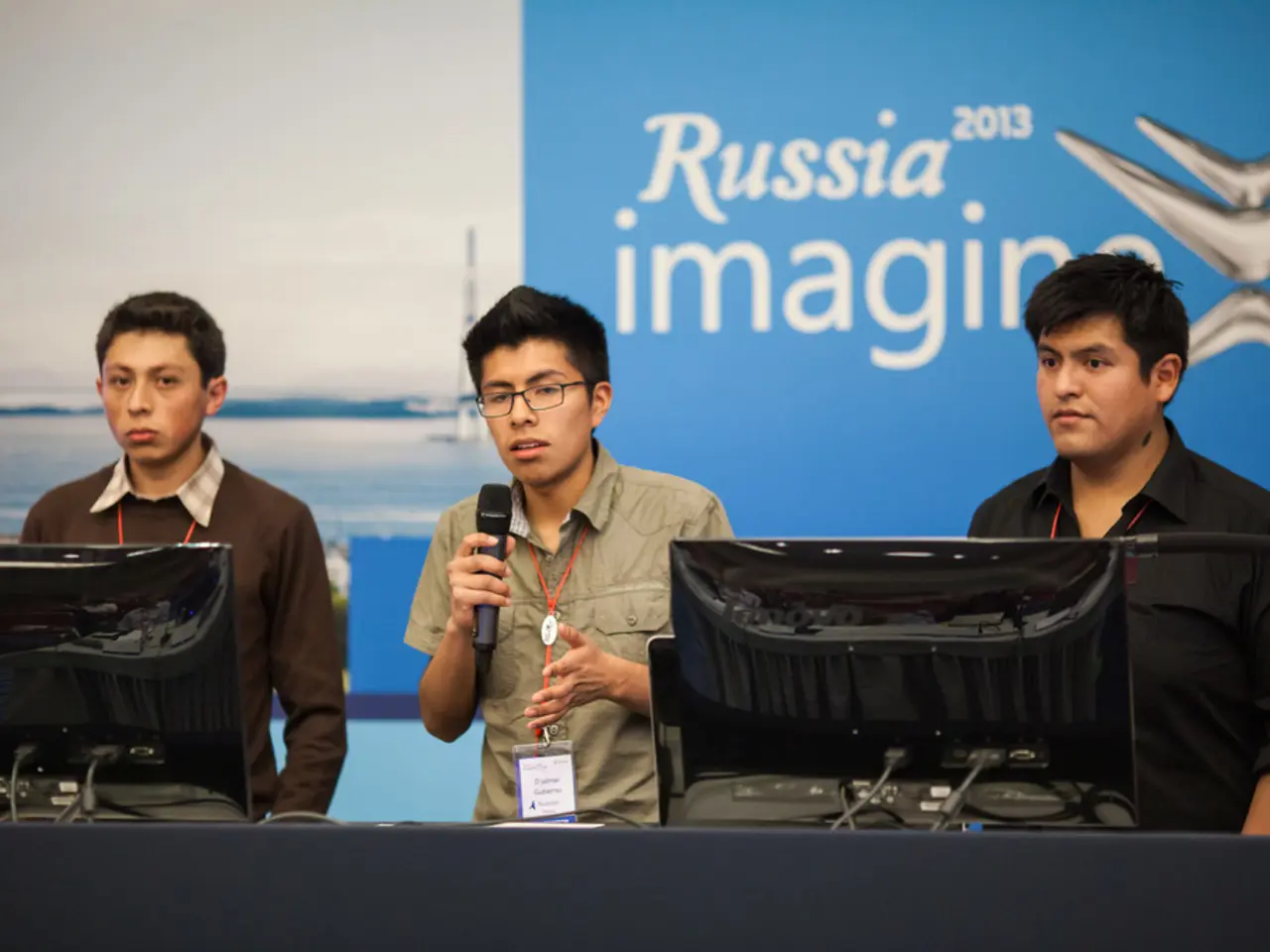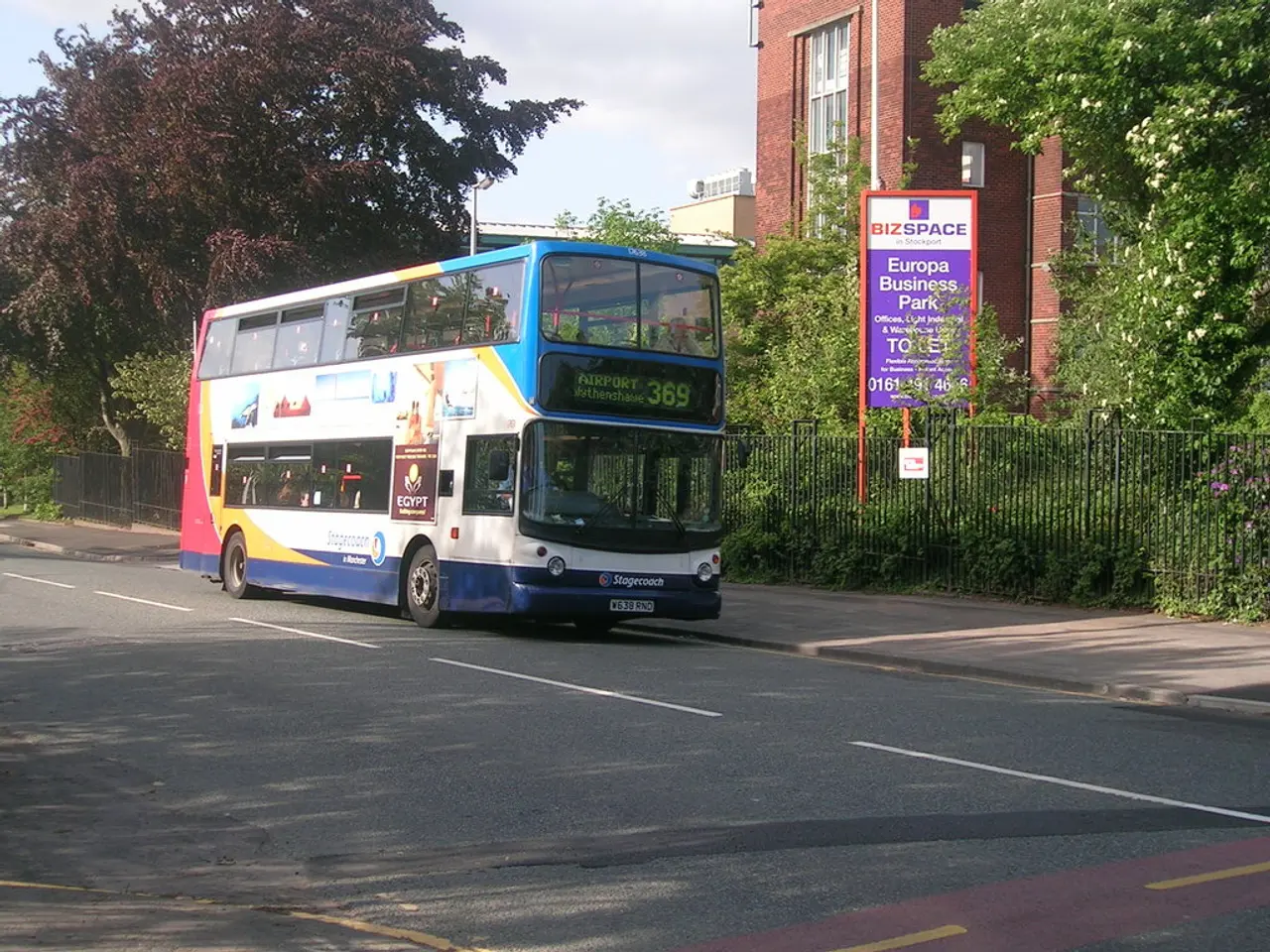Assessing the Efficient Utilization of EU Allocations
The European Commission's Recovery and Resilience Facility (RRF) is playing a significant role in Latvia's digital transformation, providing financial support for enhancing digital connectivity and infrastructure. A total of €365 million, or 19% of the Recovery Fund, is earmarked for digital initiatives in Latvia.
Latvia has allocated €16.5 million from its Recovery and Resilience Plan (RRP) to improve digital connectivity, focusing on two key measures: last-mile connectivity in rural areas and passive infrastructure development on the Via Baltica 5G Corridor.
However, challenges persist in implementing these digital transformation projects. Digital skills and interest, infrastructure rollout, regulatory complexities, and technological sovereignty are some of the obstacles Latvia faces. The government is addressing these issues through education and outreach programs, simplifying permit-granting procedures, and working towards universal 5G coverage in urban areas and high-speed connectivity in rural areas.
The digital economy is advancing rapidly, and Latvia must seize every opportunity provided by the Recovery Fund to remain competitive and modern. Only 4% of the Recovery Fund allocation is allocated for direct public administration expenses in Latvia. Regulations have been adopted to encourage companies to invest in their employees' digital skills.
Nearly €2 billion is available to Latvia from the Recovery Fund, with the largest investments directed towards climate change mitigation (€676 million or 34%), digital transformation (€365 million or 19%), reducing inequality (€379 million or 19%), and investments in the economy, health, energy, and justice.
Delays in project announcements and actual fund deployment in Latvia's digital transformation directly impact the IT sector, a key partner in the country's modernization. By August 2026, Latvia needs to meet over 200 targets, including significant measures in digitalization and business modernization.
The European Commission positively evaluates Latvia's progress in implementing reforms and investments, but calls for an accelerated pace. Nearly 36,000 laptops have been delivered to schools and municipalities in Latvia, improving the technological infrastructure in general education.
However, delays in launching digitalization projects can result in some state functions relying on outdated systems, which can be costly and inefficient. These funds aim to improve public sector efficiency, enhance the quality and accessibility of public services, and ensure the country's long-term competitiveness.
Right now, Latvia has the chance to turn EU support into practical and lasting change, and that cannot be postponed. The pace of digitalization must not be dictated by inertia or bureaucratic delays, requiring decisive action and trust in its partners.
- In order to boost Latvia's digital transformation and modernization, the government is allocating €16.5 million from its Recovery and Resilience Plan (RRP) towards digital connectivity, focusing on improving last-mile connectivity in rural areas and passive infrastructure development on the Via Baltica 5G Corridor.
- In addition to digital initiatives, nearly €2 billion is available to Latvia from the Recovery Fund, with significant investments directed towards climate change mitigation, digital transformation, reducing inequality, and investments in the economy, health, energy, and justice.
- To overcome the challenges in implementing digital transformation projects, such as digital skills, infrastructure rollout, regulatory complexities, and technological sovereignty, the government is focusing on education and outreach programs, simplifying permit-granting procedures, and working towards universal 5G coverage in urban areas and high-speed connectivity in rural areas.




